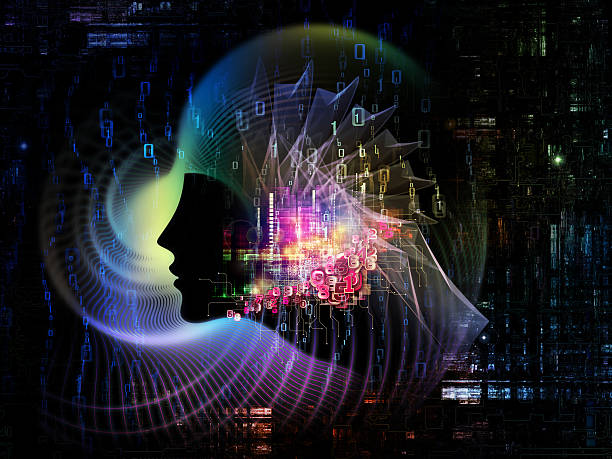What is an AI assistant? Introduction to the concept and its applications
![]()
What is an AI assistant?
#AI_Assistant is a software or system that uses artificial intelligence to perform various tasks and provide assistance to users.
These assistants can be used in various fields such as answering questions, managing tasks, providing recommendations, generating content, and more.
The main goal of designing AI assistants is to increase productivity and facilitate tasks for users.
In summary, an AI assistant can act as a virtual companion that helps users with daily and specialized tasks.
These tools, using #Machine_Learning algorithms and Natural Language Processing (NLP), are capable of understanding and responding to user requests.
AI assistants come in different types, each designed for specific applications.
Some of these assistants are embedded as software in smartphones and computers, while others exist as hardware in smart devices such as speakers and displays.
AI assistants can help users in various fields, including:
- Answering questions and providing information [Wikipedia]
- Task management and scheduling
- Providing recommendations and suggestions
- Content generation (text, image, video)
- Controlling smart devices
- Providing customer services
AI assistants continue to advance rapidly.
Research shows that 80% of customers trust companies with a professional website more. Does your current website inspire this trust?
With Rasaweb’s corporate website design services, permanently solve the problem of customer distrust and a weak online image!
✅ Create a professional image and increase customer trust
✅ Attract more sales leads and grow your business
⚡ Get free consultation
Types of AI assistants and their features

Types of AI assistants
AI assistants can be divided into different categories based on their application type, interaction method, and platform used.
Some common types of AI assistants include:
- Voice Assistants: These assistants respond to users’ voice commands using #Voice_Recognition and natural language processing.
Examples include Siri (Apple), Google Assistant (Google), and Alexa (Amazon). - Text-based Assistants: These assistants interact with users through text and are commonly used in messaging apps, websites, and applications.
Chatbots are an example of this type of assistant. - Visual Assistants: These assistants interact with users through images and videos and are commonly used in photo editing apps, facial recognition, and augmented reality.
- Personal Assistants: These assistants collect users’ personal information and provide customized services and recommendations.
- Virtual Assistants: These assistants act as virtual representatives for companies and organizations, helping customers resolve issues and answer questions.
Each of these assistants has unique features and capabilities that make them suitable for specific applications.
For example, voice assistants are ideal for simple tasks such as playing music, setting reminders, and answering general questions, while text-based assistants are preferred for providing customer service and answering more complex questions.
A good #AI assistant should have the ability to understand natural language, learn from data, respond quickly and accurately, and provide customized services.
AI assistants are transforming human life.
Applications of AI assistants in daily life
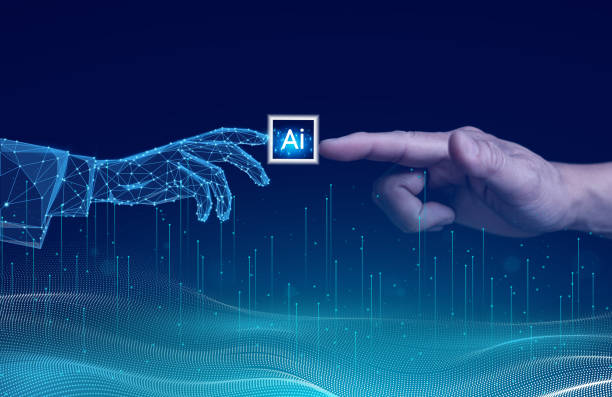
Applications of AI assistants in daily life
AI assistants have increasingly permeated our daily lives and help us in various areas.
Some common applications of AI assistants in daily life include:
- Task Management and Scheduling: AI assistants can help users manage tasks, set reminders, schedule meetings and appointments.
- Answering Questions and Providing Information: AI assistants can answer users’ questions on various topics and provide them with the necessary information.
- Controlling Smart Devices: AI assistants can help users control smart devices such as lights, thermostats, and televisions.
- Playing Music and Podcasts: AI assistants can help users play their favorite music and podcasts.
- Providing News and Weather Reports: AI assistants can provide users with the latest news and weather reports.
- Language Translation: AI assistants can help users translate different languages.
These are just a few examples of AI assistants’ applications in daily life.
With technological advancements, it is expected that the applications of these assistants will expand further in the future, making our lives easier and more efficient.
AI assistant is currently a powerful tool that can help us in many areas.
| Feature | Description |
|---|---|
| Answering questions | Providing accurate and relevant answers to user questions |
| Task management | Setting reminders and managing daily schedules |
| Device control | Controlling smart devices via voice commands |
| Providing information | Providing information on various topics |
AI assistants in businesses: Opportunities and Challenges
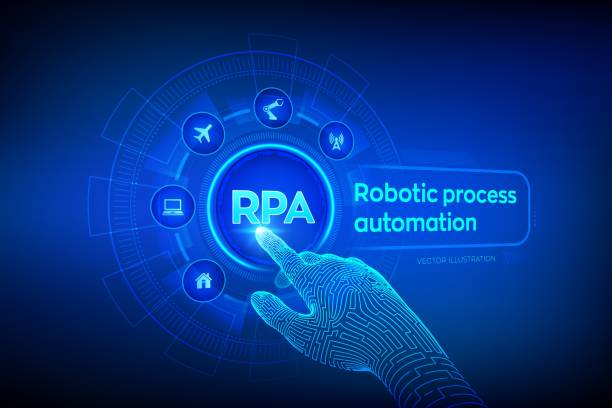
AI assistants in businesses
The use of AI assistants in businesses can provide many opportunities for increasing productivity, reducing costs, and improving customer services.
Some applications of AI assistants in businesses include:
- Providing Customer Services: AI assistants can act as virtual representatives for companies and organizations, helping customers resolve issues and answer questions.
- Automating Business Processes: AI assistants can automatically perform repetitive and time-consuming tasks, allowing employees to focus on more important duties.
- Data Analysis and Reporting: AI assistants can analyze business data and provide useful reports that help managers make better decisions.
- Marketing and Sales: AI assistants can help businesses market their products and services and increase sales.
However, the use of AI assistants in businesses also comes with challenges.
Some of these challenges include:
- Cost: Implementing and maintaining AI assistants can be expensive.
- Security: AI assistants can be vulnerable to cyberattacks, jeopardizing sensitive business information.
- Privacy: The collection and use of users’ personal data by AI assistants can raise privacy concerns.
- Need for Expertise: Implementing and managing AI assistants requires specialized knowledge and technical expertise.
Despite the challenges, AI assistants can help improve business performance and efficiency.
How much does losing business leads due to an unprofessional website cost you? With Rasaweb’s professional corporate website design, solve this problem forever!
✅ Increase credibility and trust of potential customers
✅ Easier attraction of new business leads
⚡ Click now for a free consultation!
Privacy and security in using AI assistants

Privacy and security in using AI assistants
Privacy and security are among the most important concerns when using AI assistants.
These assistants usually have access to a large volume of users’ personal data and, if security measures are not followed, can be vulnerable to cyberattacks.
To maintain privacy and security when using AI assistants, users should observe the following:
- Choose a reputable AI assistant: Before using an AI assistant, ensure it is provided by a reputable and trustworthy company.
- Review the privacy policy: Before using an AI assistant, carefully read its privacy policy and ensure you agree with it.
- Manage permissions: Carefully check what information the AI assistant has access to and disable unnecessary permissions.
- Use a strong password: Use a strong and unique password for your user account in the AI assistant.
- Update software: Regularly update the AI assistant software to benefit from the latest security patches.
- Beware of phishing attacks: Do not respond to suspicious emails and messages that ask for personal information.
In addition, companies providing AI assistants must also take necessary measures to protect user privacy and security.
These measures include:
- Data encryption: Encrypting user data to prevent unauthorized access.
- Using two-factor authentication: Implementing two-factor authentication to enhance the security of user accounts.
- Monitoring activities: Monitoring suspicious activities in the system to identify and prevent cyberattacks.
- Transparency: Providing transparent information about how user data is collected and used.
By observing these points, privacy and security in the use of AI assistants can be largely protected.
What to expect from the future of AI assistants?
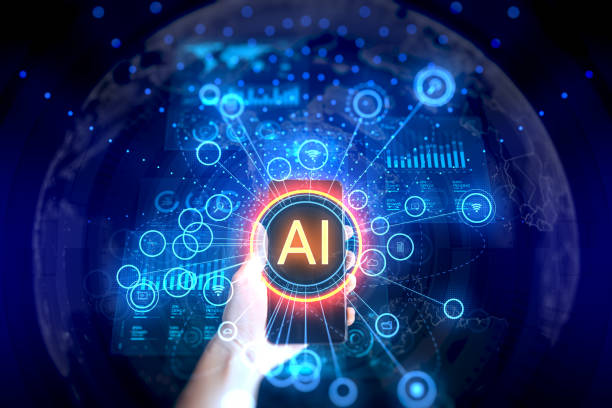
The Future of AI Assistants
The future of AI assistants looks very bright and exciting.
With technological advancements, these assistants are expected to become smarter, more efficient, and more comprehensive.
Some expectations for the future of AI assistants include:
- Improved Natural Language Understanding: Future AI assistants will be able to understand natural language more accurately and comprehensively, and answer more complex questions.
- Provision of Customized Services: Future AI assistants will be able to provide more customized services and recommendations based on each user’s needs and interests.
- Continuous Learning: Future AI assistants will be able to continuously learn from new data and experiences and improve their performance.
- Integration with Other Technologies: Future AI assistants will integrate with other technologies such as the Internet of Things, augmented reality, and virtual reality, creating new user experiences.
- Presence in Various Industries: Future AI assistants will have a more prominent presence in various industries such as healthcare, education, transportation, and manufacturing.
Overall, it can be said that AI assistants will become an integral part of our lives in the future and will help us with many daily and specialized tasks.
#Artificial_Intelligence is progressing rapidly.
Comparison of popular AI assistants in the market

Comparison of popular AI assistants
Currently, several popular AI assistants are available in the market, each with its unique features and capabilities.
Some of these assistants include:
- Siri (Apple): Siri is Apple’s voice assistant used on iOS and macOS devices.
Siri can answer user questions, set reminders, launch apps, and control smart devices. - Google Assistant (Google): Google Assistant is Google’s voice assistant used on Android, iOS, and Google Home devices.
Google Assistant can answer user questions, set reminders, launch apps, control smart devices, and provide personalized information. - Alexa (Amazon): Alexa is Amazon’s voice assistant used on Amazon Echo devices and other smart devices.
Alexa can answer user questions, set reminders, launch apps, control smart devices, play music, and make online purchases. - Cortana (Microsoft): Cortana is Microsoft’s voice assistant used on Windows, iOS, and Android devices.
Cortana can answer user questions, set reminders, launch apps, control smart devices, and provide personalized information.
Choosing the best AI assistant depends on each user’s needs and preferences.
If you use Apple devices, Siri might be a good option.
If you use Android devices, Google Assistant might be a better choice.
If you are looking for a voice assistant to control your smart devices, Alexa could be a suitable option.
And if you use Windows devices, Cortana could be a good choice.
| Assistant Name | Platforms | Key Features |
|---|---|---|
| Siri | iOS, macOS | Answering questions, setting reminders, controlling devices |
| Google Assistant | Android, iOS, Google Home | Answering questions, setting reminders, controlling devices, personal information |
| Alexa | Amazon Echo, smart devices | Answering questions, setting reminders, controlling devices, playing music, online shopping |
| Cortana | Windows, iOS, Android | Answering questions, setting reminders, controlling devices, personal information |
How to build a personal AI assistant
![]()
How to build a personal AI assistant
Building a personal AI assistant can be an exciting and challenging project.
For this, you need knowledge of programming, artificial intelligence, and natural language processing.
The general steps to build a personal AI assistant are:
- Define the Goal: First, you need to specify your goal for building the AI assistant.
What tasks do you want your assistant to perform? Answering questions, managing tasks, controlling smart devices, or something else? - Data Collection: To train your AI assistant, you need to collect a lot of data.
This data can include text, audio, image, and video. - Tool Selection: To build your AI assistant, you need to choose the right tools.
Some common tools for this include TensorFlow, PyTorch, and Dialogflow. - Model Training: After collecting data and selecting tools, you need to train your AI model.
This involves using machine learning algorithms to learn from the data. - User Interface Implementation: After training the model, you need to implement a user interface for your AI assistant.
This user interface can be a desktop application, a mobile application, or a website. - Testing and Improvement: After implementing the user interface, you need to test your AI assistant and improve it.
This involves collecting feedback from users and fixing bugs.
Building a personal AI assistant is a complex project, but with effort and perseverance, you can create a smart and useful assistant for yourself.
Do you have an online store, but your sales are not as expected? Rasaweb solves your problem forever with professional e-commerce website design!
✅ Significant increase in conversion rates and sales
✅ Exceptional user experience for your customers
⚡ Click to get a free consultation with Rasaweb!
Challenges in developing and implementing AI assistants
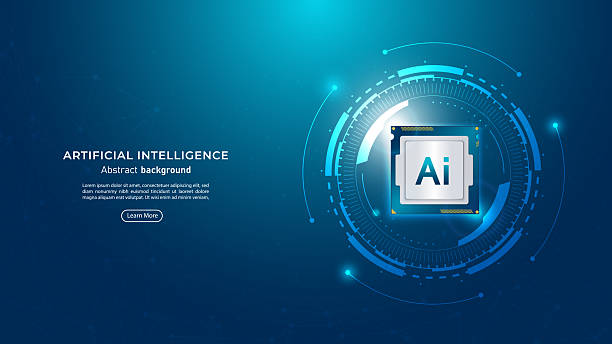
Challenges in developing and implementing AI assistants
The development and implementation of AI assistants come with numerous challenges.
Some of these challenges include:
- Data Collection: Collecting sufficient and high-quality data to train AI models can be a major challenge.
- Natural Language Processing: Understanding natural language and accurately and completely responding to user questions is a complex challenge.
- Personalization: Providing personalized services and recommendations to each user requires collecting and analyzing personal information, which can raise privacy concerns.
- Security: AI assistants can be vulnerable to cyberattacks, jeopardizing sensitive user information.
- Cost: Developing and implementing AI assistants can be expensive.
To overcome these challenges, developers of AI assistants must use advanced artificial intelligence, cybersecurity, and privacy protection techniques.
AI assistants and their impact on the future of jobs

AI assistants and their impact on the future of jobs
AI assistants can have a significant impact on the future of jobs.
These assistants are capable of automating many repetitive and time-consuming tasks, allowing employees to focus on more important duties.
This can lead to increased productivity and reduced costs.
However, the use of AI assistants can also lead to the loss of some jobs.
Jobs that involve repetitive and automatable tasks are more at risk.
Conversely, jobs that require creativity, critical thinking, and interpersonal skills are less affected.
To prepare for a career future in the world of AI, individuals must learn new skills and adapt to technological changes.
Some important skills for future careers include:
- Technical skills (programming, data analysis, artificial intelligence)
- Soft skills (creativity, critical thinking, problem-solving, communication)
- Interpersonal skills (collaboration, leadership, empathy)
By learning these skills, individuals can succeed in new jobs created by AI and benefit from this technology.
The correct use of AI assistants is beneficial to humans.
Frequently Asked Questions
| Row | Question | Answer |
|---|---|---|
| 1 | What is an AI assistant? | A software program that performs tasks or services for an individual based on verbal or textual commands. |
| 2 | Name a few examples of AI assistants? | Siri, Google Assistant, Alexa, and Cortana. |
| 3 | How do AI assistants work? | They use Natural Language Processing (NLP), machine learning, and artificial intelligence to understand user input and provide responses or perform tasks. |
| 4 | What tasks can an AI assistant perform? | Answering questions, setting reminders, playing music, sending messages, managing calendars, and controlling smart devices. |
| 5 | What are the benefits of using an AI assistant? | Increased productivity, quick access to information, assistance for individuals with special needs, and simplification of daily tasks. |
| 6 | Are AI assistant responses always accurate? | No, they may sometimes make mistakes or provide outdated information, especially on complex or sensitive topics. |
| 7 | What are the privacy concerns regarding AI assistants? | Recording and storing audio/text data, potential for unauthorized access, and use of data for advertising purposes. |
| 8 | What will the future of AI assistants look like? | Becoming smarter, greater integration with devices and platforms, deeper understanding of emotions, and the ability to perform more complex tasks. |
| 9 | Do AI assistants learn from users? | Yes, through machine learning and data collection from previous interactions to improve performance and personalize responses. |
| 10 | What is the difference between an AI assistant and a chatbot? | An AI assistant has the ability to perform a wider range of tasks beyond conversation and is often integrated with an operating system or hardware, while a chatbot is primarily designed for conversation or answering specific questions. |
And other advertising services from Rasaweb Advertising Agency
- Smart Link Building: Revolutionize SEO ranking by leveraging real data.
- Smart Digital Branding: Transform online growth with custom programming.
- Smart SEO: A blend of creativity and technology for online growth through Google Ads management.
- Smart Advertorial: An innovative platform for improving campaign management with custom programming.
- Smart Custom Software: A novel service to increase user engagement through SEO-driven content strategy.
And over a hundred other services in internet advertising, advertising consultation, and organizational solutions.
Internet Advertising | Advertising Strategy | Advertorial
Resources
AI Assistant on WikipediaArticle: What is Artificial Intelligence?The Future of Smart AssistantsComplete Guide to Smart Voice Assistants
? In today’s fast-paced and competitive world, a strong online presence is paramount. Rasaweb Afarin Digital Marketing Agency, specializing in SEO, content marketing, and responsive web design, assists your business on its path to growth and success.
📍 Tehran, Mirdamad Street, next to Bank Markazi, Kazeroun Jonoubi Alley, Ramin Alley, No. 6

